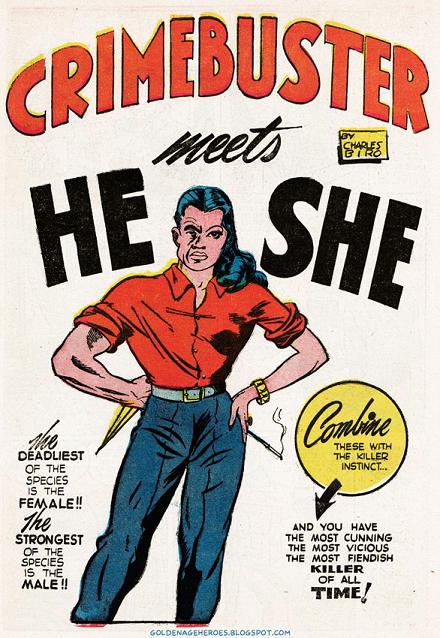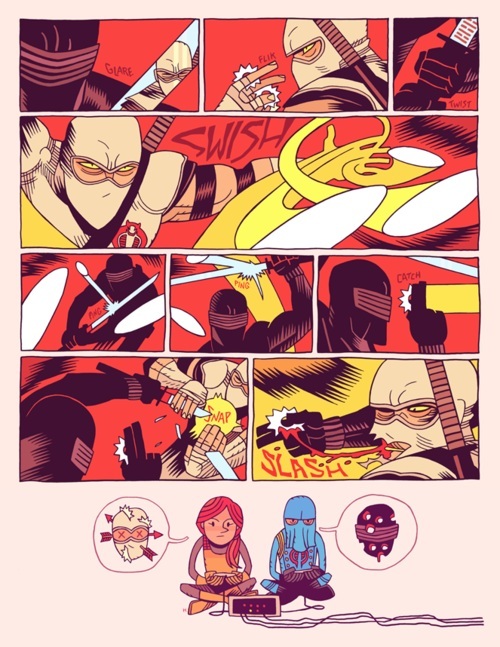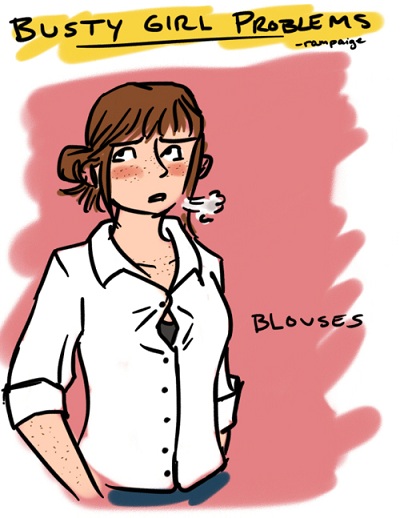No idea how I ended up with his Tumblr on one of my open tabs, but Dan Hipps cartoons are cute and funny and drenched in post-eighties pop culture and worth checking out.
Comix
What do we want from digital comics?
What about you? As a consumer, and without being glibly unrealistic as to what companies and creators would be able to do, what would you buy and read right now if it were made available to you that way? For what are you a customer right this very minute? I think it might be worth to think about what we’d like from this material as more and more options as to how we might get it or gently pushed off of the table.
Let me tell you.
I want to get the latest American comics as soon or even earlier as they are in the shops in the US — here in Europe we’re usually a couple of days to a week behind at best, but I also want to be able to pick up complete runs of a creator or series, not to mention classic Bande Dessinee or Manga series. If I really needed, I would like to be able to download everything DC has ever published.
And I would prefer to be able to do all that through one site, rather than have to struggle with dozens of different distributors, who all want me to use their incompatible software. Finally, I would like my comics to be DRM free, in a format that I can use on every computer I own, whether it’s my android based mobile, my mini laptop using Linux, my Windows desktop or even the multimedia player that’s hooked up to my telly.
The good news is, I can do that. The bad news is, all the links above go to The Piratebay and neither the creators, nor the publishers would get a lousy dime for it if I did download any of this. (Which, just in case any Disney lawyers are reading, I would be legally entitled to do here, as Dutch copyright law has a provision for making copies for home use, permitted even if the source itself is illegal: can download, can’t upload.) Obviously, though good for me, not so good for the comics industry as a whole, nor for people already struggling to make a living out of their art. But it shows what the legitimate digital comics sellers need to do to make it worthwhile to buy them.
Get the stock online, make it easy to buy and price it in such a way that it becomes an impulse buy. I don’t want to see old Marvel or DC back issues for a buck: I want to see whole miniseries and story arcs for a buck. A good example of what I’m talking about is the Good Old Games site, which sells computer games, both new and classic. The older games are priced anywhere from three to ten bucks, right in that impulse buying range, but they’re not just shovelware: you get the extension packs as well, they’re tweaked to run on modern computers/operating systems and they’re DRM free: you download them, you can use them. It makes it literally easier for me to drop a couple of bucks to get a game there that I know I have in my shed on cd somewhere…
For comics, the format is already there: CBR/CBZ, basically just renamed rar and zip files, which can be read properly by a range of comics readers on almost every operating system under the sun, are easy and quick to download (ten to fifty megabyte per issue gets you decent quality) and means that you’re as a customer are not tied to one particular reseller/comics reader. Best of all, it’s DRM free so no worries about not being able to read your comics if the reseller ever vanishes.
Now I am fully aware that getting the various comics publishers to go DRM free is going to be difficult, as nobody in the comics industry has ever shown any capability to learn from examples outside it, but as the music, movie and finally even the bookm publishing industries have found out, DRM doesn’t work, only hacks off your customers and drives them towards piracy. Heck, the very fact that I can download everything DC has ever brought out (roughly a terabyte of comics), including dozens of titles they themselves can’t or won’t ever reprint (Fox and Crow or all those Bob Hope comics, or Big Town or…), should be proof positive that DRM don’t work in a medium where it’s so easy to exploit the analog hole: anybody with a scanner can route around your copy protection. Most of what’s available on the Piratebay was there long before most comics publishers even started to toy with the idea to go digital.
Worse, with DRM encrusted comics, the real winners might not even be the comics publishers, but the middlepersons selling them, as Charlie Stross explains has been happening in book publishing where Amazon has emerged as the 800 pound gorilla. You can easily see the same thing happening to digital comics as well, as it already might be.
To sum up: make it easy to get, make it cheap enough (at least for the overwhelming majority of back issue stock) to get it in the impulse buy range, make sure that it’s easier and nicer to use than going the pirated route would be. That’s what worked for iTunes and Netflix, that’s what can work for digital comics as well.
Golden Age comics didn’t do subtlety

The deadliest of the species is the female!!
The strongest of the species is the male!!
Combine these with the killer instinct…
and you have the most cunning, the most vicious, the most fiendish killer of all time!
Subtlety wasn’t something Golden Age (superhero) comics did particularly well, as shown by this splash page from Boy Comics #9: Crimebuster meets he-she. Yet despite the over the top concept of a literally half male, half female killer, the story itself is actually quite well done. Though played for laughs, “he-she” themselves is not made fun off, but rather how they use their feminine side to trick innocent bystanders into helping them escape from Crimebuster.
The plot is golden age simplistic: “he-she” (who’s never given their real name) applies for a room in a boarding house, flirts with the land lady and marries her for her money. Despite the marriage, the landlady only finds out “he-she” is half male, half female when they fight over money, leaving “he-she” to kill her. The police investigate when one of the tenants is suspicious, Crimebuster tags along with them, is slightly more persistent than the plods, then finds the body of the landlady because her cat, who was bricked up with her, was meowing. Cue fisticuffs and car chases, which ends with justice prevailing as “he-she” gets the chair…
According to the Grand Comics Database this story was written and drawn by Charles Biro, creator of Crimebuster though better known for his Crime Doesn’t Pay work. Crimebuster himself was a bit of an odd duck superhero himself: an ordinary schoolboy whose parents had been killed by a nazi spy called Iron Jaw who became a superhero to bring him to justice. He creates a costume by, as Wikipedia puts it adding “his military school’s cape to the contemporary hockey uniform he is wearing at the time this adventure begins (which conveniently features the school’s initial “C” on the chest). Some time later he ditches the cape when a girl tells him it looks silly, which makes him about the only superhero ever self aware enough to care about how he looks to ordinary folk.
The Crimebuster stories are somewhat of a cult favourite, though never having been reprinted much, not quite fitting the superhero niche and therefore somewhat overlooked in Golden Age revivals. If I remember correctly, even Roy Thomas only brought back Iron Jaw, not CB himself in his eighties Alter Ego homage to the Golden Age. To be fair, Iron Jaw is a much more interesting villain than CB is a hero, unrepentently evil and brutal in a way few other Golden Age villains were.
The whole story can be found here (zip file). I’ve copied it from the brilliant Digital Comic Museum, who have the full issue available. The Digital Comic Museum is a site dedicated to preserving public domain comics by making them available in digital form online; you may need a membership to be able to download files. All files are in either *.cbr or *.cbz format, which are basically renamed *.rar or *.zip files, able to be processed by both dedicated comics reading software or unrarred/zipped so you can look at the images directly.
No, Jim Balent has nothing to do with this
Now here’s one of the reasons I shelled out five books for a subscription to Metafilter, posts like these leading me to blogs like Busty Girl Comics and cartoonists like Rampaige. I love the artwork on these cartoons, it reminds me of Chynna Clugston’s art on Blue Monday, loose, somewhat manga influenced and cute.
For all the annoyances the internet can bring you daily more faster and more often than traditional media could, you have to thank it for something like this. Fifteen-twenty years ago a series of cartoons about the real problems large breasted women face would at most have been a self published mini comic, maybe getting half a paragraph in a TCJ column, mostly gone unnoticed otherwise. That’s progress.
Darwyn Cooke should shut his big gob
Via a long chain links, I ended up at Abahy Khosla’ short post about Darwyn Cooke’s Rolling Stone interview:
I guess the first thing I would say is, I understand how you feel. I have certainly felt that way about things. I would say I understand that kind of an emotional response to something that meaningful. I think it’s all fair game. I’ve read some pretty nasty things said about myself, for example. I can deal with that. There are times when I wish some of these guys – because I think some of them know better – I wish they would take a moment and stop and think. And instead of referring to a man like [veteran artist] Joe Kubert as a scab or a disgrace, you might want to stop for a minute and think with this diverse group of talent involved with the project, maybe there is more to the story than they know. Maybe there are reasons people are willing to work on this. Maybe its not as clear cut as a lot of people think. I’m speaking about this from a distance. I was never in the room, while anything went on, but maybe there’s just more to the story than people think.
To be fair, the difference between working on Before Watchmen, where the originally creators were –legally!– screwed out of their rights and the primary creator has strongly stated his disdain for these prequels and working on your average DC or Marvel company owned titles, where said screwing was done decades ago and most of the original creators are safely dead or bought off, is one of degree not kind. And you certainly cannot fault somebody like Joe Kubert for doing any of those Watchmen prequels. He has worked all his life with the constrains of American commercial comics publishing; this is just another assignment for him.
But that doesn’t mean Darwyn Cooke should get away with his passive aggressive complaining here. He is more than just a hired hand on this project, he has been an active propagandist for DC and its actions, happy to be a cog in its machine (as John Byrne once was at Marvel). He’s somebody who has the kind of talent, opportunities and reputation to do anything he wants to do in comics, but choses to be a company man, working on endless revamps (Catwoman), adaptations (Parker and re-imaginations (New Frontier, doing the same thing as Roy Thomas’ The Last Days of the Justice Society and James Robinson’s Golden Age, but in a slicker art style).
He isn’t the first cartoonist to be happier working on other people’s creations of course, but he does combine this lack of creativity with an aggressive public persona as company spokesman, attacking Alan Moore for being annoyed about the Watchmen prequels, lending himself and his prestige to these attacks, revealing himself to be, well, kind of a douche.
Darwyn Cooke is a slick but limited imitator of better artists, somebody who will at best be a footnote in comics history in fifty years time, while Alan Moore is one of the greatest writers working in comics of the past fifty years and certainly one of the most principled ones. His attacks on Moore are as a fly buzzing a giant: harmless, but that doesn’t mean you don’t want to swat the fly anyway.

